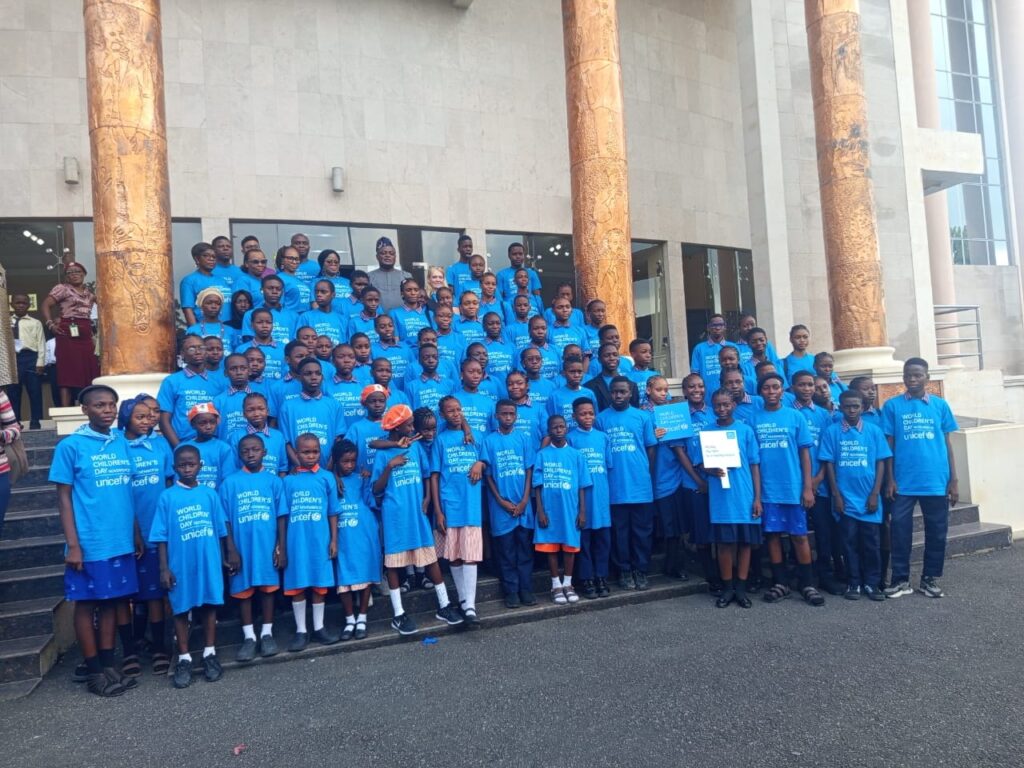World Children’s Day 2025 in Lagos unfolded as both celebration and a call to duty on Thursday, as UNICEF gathered newly elected members of the Lagos Children’s Parliament and top lawmakers of the Lagos State House of Assembly for a high-level policy dialogue that placed children’s rights at the centre of legislative action.
The event, held at the Lagos Assembly Complex in Alausa, brought into sharp focus the realities facing millions of children—and the urgent steps Lagos must take to safeguard their future.
In her keynote remarks, Celine Lafoucriere, Chief of UNICEF Lagos Field Office, issued a powerful message: children’s rights are not optional privileges but fundamental entitlements that demand political will and legislative action. She warned of a disturbing global rollback in child rights, driven largely by drastic funding cuts.
“Funding is being slashed just when children need it most,” she said. “These cuts mean 4.5 million more children could die by 2030. Six million more children could be out of school by 2026. Over 200 million children desperately need help, and the money to reach them is disappearing.”
But she stressed that Lagos can choose a different path. Commending the state’s strong record in birth registration, Lafoucriere said Lagos has consistently shown that when it prioritises children, it delivers.
“These children share something in common: they all have rights—the right to education, health, protection, clean water, and to be heard,” she said. “These are not favours we grant when budgets allow. These are rights.”
“You are in the House of Assembly, where laws are made and budgets approved. You have the power to change their lives today,” she said. “We want to hear specific commitments—when to fix that school, expand digital learning to remote communities, build that health centre, strengthen health insurance, or create spaces for children’s voices.”
She emphasised that every investment in children translates into healthier adults, safer communities, and a more prosperous Lagos.
The UNICEF’s expectations for Lagos lawmakers include enacting or strengthening laws that guarantee safe learning environments and protect children from violence; legislation ensuring universal access to basic education, especially for vulnerable and hard-to-reach children; expansion of health and nutrition policies that prioritise children in low-income communities; legal frameworks that institutionalise children’s participation in policymaking, ensuring they are heard in decisions affecting them; and stronger enforcement mechanisms for child protection laws, including sanctions for abuse and neglect.
“Let us leave here with actions children can see and feel in their daily lives,” Lafoucriere urged.
















